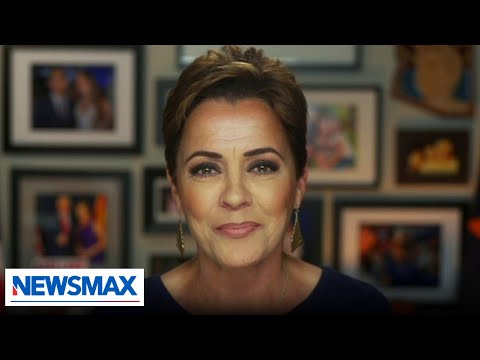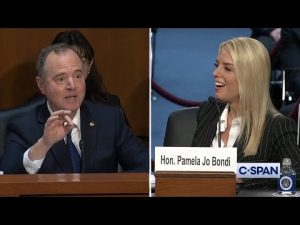In the ever-evolving world of American politics, a familiar figure has re-emerged, taking on a pivotal role in shaping conservative media narratives. Kari Lake, former Arizona news anchor and now Donald Trump’s new director of The Voice for America, recently made an appearance discussing the current state of the media and its relationship with the Trump presidency. With a background steeped in journalism and a sharp wit to boot, Lake offered her insights on what she perceives as a media meltdown that could spell trouble for mainstream outlets.
As Lake sees it, the media landscape is shifting dramatically. After over two decades as an anchor, she has a front-row seat to the chaos that often engulfs corporate media entities like CNN and MSNBC. Her assessment is that these outlets, much like the overconfident kid who thinks he can skip class and still ace the final, are headed for extinction unless they adapt. According to Lake, the American public has spoken loud and clear, choosing to support President Trump and his America First agenda over the dismal narratives put forth by traditional media. With ratings dwindling faster than ice cream on a hot summer day, she suggests that the media needs to sprinkle some fairness into their reporting if they want to stay relevant.
One key point of frustration for Lake and many conservatives is what she calls the character assassination of Donald Trump. She argues that as we enter what she believes could be one of the most monumental periods in American history, journalists have a golden opportunity to cover significant events fairly rather than getting stuck in their own bias. Instead of feuding with Trump or perpetuating their own narratives, Lake believes that the media should buckle down and accurately report on the unfolding story of a presidency that could redefine American politics.
There is also a significant mention of PolitiFact’s recent blunder, which she humorously points out. The organization’s claim that Haitian migrants were resorting to eating cats and dogs was deemed its “biggest lie of the year.” In Lake’s eyes, this mishap serves as both a symptom and a beacon of the larger problems within the corporate media landscape. She believes this reflects a trend of pushing outrageous narratives that further alienate them from the American populace, who see through the smoke and mirrors.
Even the unflappable Joe Biden isn’t safe from the scrutiny of Lake and her colleagues. Lake emphasizes that a long-standing awareness of Biden’s declining faculties existed long before mainstream media dared to admit it. Despite the attempts to gaslight the public into believing everything was fine, she suggests that most Americans had the foresight to recognize the inaccuracies. As the political climate grows increasingly complex, Lake feels it’s time for journalists to engage honestly with the public instead of simply spinning tales based on their own agendas.
In summary, with Kari Lake at the helm of The Voice for America, there is a sense of revitalization brewing among conservatives. Her call for media integrity and fairness resonates strongly in a time when many feel misrepresented and marginalized. As the dynamics of American politics shift, it appears that Lake’s mission is not just related to promoting a political figure but also to reclaiming the journalistic integrity that she believes has been lost. Whether mainstream media rises to the challenge or continues down its self-destructive path remains to be seen, but one thing is clear: the political stakes are higher than ever, and the world is watching.



